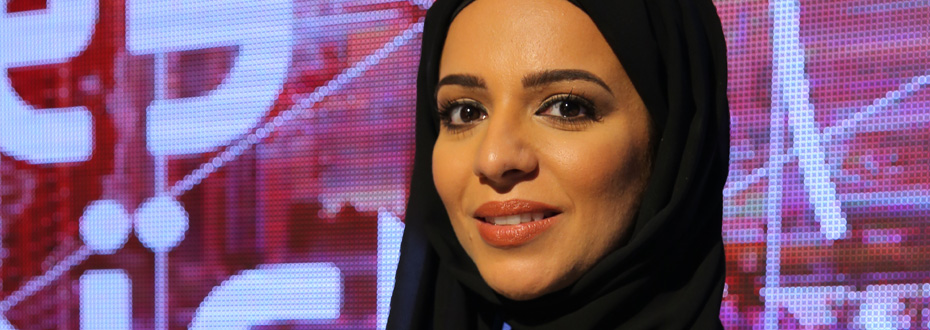Happiness Is a Decision’, Says Speakers at the Final Day of Happiness Journey


Dubai, MINA – Setting our own motives and objectives are primary tools for achieving happiness, confirmed experts at the sixth and final day of the Happiness Journey’s second edition, held under the patronage of H.H. Sheikh Hamdan bin Mohammed bin Rashid Al Maktoum, Crown Prince of Dubai and Chairman of Dubai Executive Council.
Speakers assured their audience that happiness is a decision that we make ourselves, and that is not connected to any external components, reiterating the great importance of maintaining a healthy body to feel happy, motivated and positive.
In a session titled “Unlocking Happiness through Passion”, Emirati author and media personality Safeya Al Shehhi noted that “every person has their own recipe for happiness”, reminding visitors that happiness stems from contentment, patience, and hard work.
Al Shehhi identified three elements to achieve happiness: First is passion; “We must allow ourselves to think, we must dare to think,” she said, quoting Thomas Bernhard. The second element is setting goals, Al Shehhi said, cautioning the audience that a life without goals is disoriented and makes it difficult to be truly happy. The third and final element is planning ahead to achieve the goals we set.
Later on, Hanus Samro, Author, Entrepreneur, and former MP in the Faroese Parliament, addressed the audience in a session titled “Failure = Success”. Samro sought to prove that happiness is not contingent on being fully physically able; he revealed that he had been diagnosed with a rare muscular disease at the age of fifteen, slowly going from being a sporty and healthy teenager to someone who found it increasingly difficult to be mobile.
Nevertheless, Samro went on to become an author, entrepreneur and the youngest member in the history of the Faroese parliament. “How did I achieve what I achieved? The answer’s quite easy. Don’t let anyone dictate what you can or what you cannot do. Just believe in yourself, execute it and do it. You might fail, but that’s okay. At least you tried. But you might also succeed. Once you succeed, that’s not enough. Set yourself a new target and do it again,” he was quoted by WAM as saying.
For her part, Certified Meditation Teacher Anne-Marie Evans spoke at a session titled “Younger for Longer?”, presenting some of the evidence from neuroscience studies which show how mindfulness and meditation play an important role in reversing the effects of ageing on the brain, potentially helping to prevent degenerative brain disorders such as Alzheimer’s disease and dementia diseases, which are on the rise as we live longer.
Citing one study conducted by neuroscientist Sara Lazar from 2005, Evans said, “[She found] that the neocortex of the brain of the older meditators – the fifty year olds – was more developed, or as developed, as the 25-year-old non meditators. So this clearly suggests that meditating over a long period of time prevents the shrinking of the brain,” she said.
Human beings are originally happy
In a session titled “The Happy Family Equation”, Dr. Khalifa Alsuwaidi, Assistant Professor at UAE University, said that happiness passes through several stages and the reason behind that is the loss of positive energy, which prevents a quicker way to happiness.
Human beings are originally happy, he noted, it is the conditions we pass through that change that. Alsuwaidi pointed out that a person with ambition is a happy and positive human; “to live a happy life, happiness should not be temporary, it should be permanent and rooted in values and principles,” he said.
Associate Lecturer at Buckinghamshire New University Lesley Lyle and her Assistant Lee Newitt, joined the Happiness Journey, speaking at a session titled “Mindfulness Matters NOW”.
The session revealed how being comfortable in the moment was the key to being happy and that this is something we can choose.
“Mindfulness is an active choice – it’s something that we can choose to do. It’s something we participate in. It’s also something that we give. And perhaps in that moment of giving and giving our attention, it’s about how we give,” said Newitt, as Lyle talked about how digital devices can interrupt mindfulness, claiming that mobiles often acted as ‘happiness thieves’ by stealing mindfulness.
The second Happiness Journey – inspired by the legacy of the UAE’s Founding Father, the late Sheikh Zayed bin Sultan Al Nahyan – highlights his values, which have been adopted as national values since the founding of the UAE.
The Journey celebrates the International Day of Happiness, observed on March 20 of every year, and aims to support the UAE’s efforts in achieving a better quality of life for the community by establishing happiness and wellbeing as a way of life and thinking. (T/RS5/RS1)
Mi’raj Islamic News Agency (MINA)





